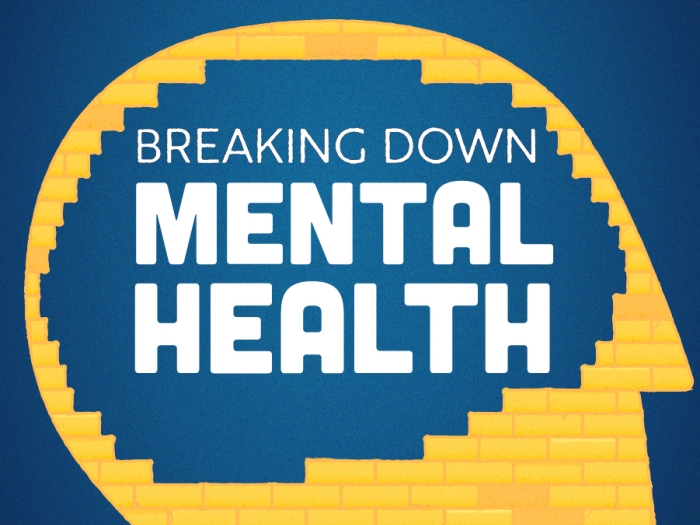Pill swallowing can be a difficult skill to learn for kids and adults, and for some kids, it's a skill they need to learn at a young age. In this short video tutorial, a child psychologist from the University of Michigan C.S. Mott Children's Hospital shares helpful tips for teaching your child how to swallow pills.
Transcript
Welcome to the Michigan Medicine News Break, your daily destination for news and stories about the future of healthcare. Today, how to help kids swallow pills in seven easy steps. Follow this expert's tips and advice to build your child's confidence. Pill swallowing can be a difficult skill to learn for many kids and adults alike. But for pediatric psychologists, Jennifer Butcher, it's a common stressor she helps many parents and their children overcome. For a child the thought of swallowing a pill can seem like a big challenge and the pill may look huge to them said Butcher. However, parents can remind their child that they swallow bites of food that are much bigger than their pills. Their esophagus or food tube is also wider than their pills and stretchy to let it slide right down. The trick she says, it's getting the pill into the right spot to slide down like a water slide rider.
Three common mistakes parents make when teaching their kids to take pills, forcing them to practice at high pressure times like when the child has to take a pill in order to get well, when they allow their emotions into the situation, which in turn impacts the child's stress levels, or when parents start their child practicing with something too large, that makes them feel that they can't do it and hence they lose confidence. Butcher also shares that parents of children with developmental delays or feeding and or swallowing issues should seek a professional's help. They need more help, more time or different strategies to learn how to do this. Their parents should talk with their providers to see if there's a child life specialist, speech pathologist, occupational therapist, or pediatric psychologist available to help with this. She says, this applies to all parents though, struggling on the pill swallowing front. The same is true for any family who tries on their own and fails. More support is always available.
For those embarking down this pill swallowing road, Butcher shares her expertise. Seven easy steps for teaching your child how to take pills. Number one, practice for only five minutes at a time. Practice should only be a few minutes at a time with the goal at the end of each session, to have your child feeling more confident each time. You don't want to make this something that feels like work to them said Butcher. She recommends starting and practicing at low pressure times, not when you're in a hurry or trying to squeeze it in. Another tip, try starting to practice while your child is still on liquid medications. Moving to pills may be easier in the long run, more portable, no refrigeration needed, but at this point, your family can still practice together in a stress free way.
Number two, plan to give stickers or another small reward for practicing. Butcher recommends families, give their child stickers as rewards for their hard work for learning to swallow pills. Parents should show confidence that their child can do it and learn it. It just takes practice and remind your child that they can move as slowly as they need. Number three, have them sit up straight in a chair and take a sip of water. To start, have them sit down and drink a sip of water. You want to teach them that their throat and their tongue are like the water slide and the pill is like a rider said Butcher. So what they want to do is wash the rider down the slide.
Number four, start with a small sprinkle. We usually recommend starting with sprinkle said, Butcher. Butcher says to place one tiny sprinkle on the middle of their tongue, and then take a drink of water to wash it down. If they're able to do that, you can move on to slightly larger candy. If they aren't able to do that, you stick with that size until they're successful, Butcher explained. Number five once successful, try slightly bigger candy. If they've mastered swallowing the tiny sprinkle, you can either move onto a larger sprinkle or a mini M&M, depending what they're ready for. Have them practice until their able to swallow that size a few times.
Number six, once successful with the slightly larger candy, move up to the size of the pill they need to take. They should gradually move up sizes. No big size leap says Butcher. Start with a sprinkle, then maybe a larger sprinkle or a nerd candy. Then a mini M&M, and then maybe one fourth of a Tic Tac or a Good & Plenty. Slowly and gradually do bigger sizes until you end up at the size of their pill. Have them do that a couple more times said Butcher, as you want them to end feeling good about their skills. The reason for ending on success is to help their confidence. We want them to feel like they can do it. So ending with success leaves them feeling a sense of accomplishment.
Number seven, if they aren't able to swallow the next size up, don't force it. Go back to the size they're comfortable with. If your child is panicking or not feeling comfortable swallowing the larger candies, remember that that's normal. Don't force it, Butcher explained. Instead, have them move back to the last size they were successful at and starting small and ending on a positive note is critical, says Butcher. The idea is that they go back and practice again the next day, starting with the size that they were successful with the day before and working up further. So each time that they practice, they end at a bigger size until they achieve the size of their pill. For more on the story and for others like it, visit www.uofmhealth.org/healthblogs, and find the Michigan Medicine News Break, wherever you listen to podcasts.

Listen to more Health Lab podcasts - a part of the Michigan Medicine Podcast Network.






